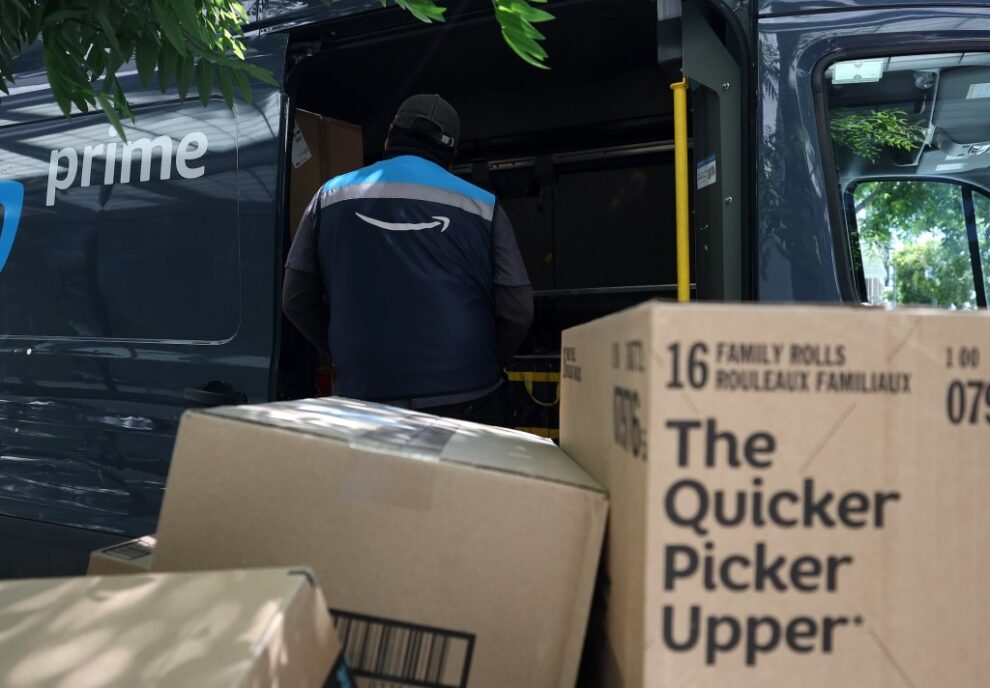
Washington D.C.’s attorney general sued Amazon Wednesday, alleging that the e-commerce giant secretly excluded residents of two ZIP codes from accessing expedited delivery provided by its Amazon Prime service.
Attorney general Brian Schwalb accuses the tech titan of relying exclusively on third-party services such as UPS and USPS to conduct last-mile deliveries in ZIP codes 20019 and 20020, impacting roughly 48,000 Prime members across both areas.
As a result, the AG argues that Amazon has collectively charged the residents millions of dollars for a service they do not receive, as the decision “led to a significant decrease in the speed and quality” of Prime deliveries compared to those in neighboring D.C. ZIP codes.
Amazon began instituting the alleged delivery exclusions in June 2022, the lawsuit says. Both allegedly impacted counties are low income compared to the rest of Washington D.C., with the lawsuit indicating that 20019 residents have a median household income of $53,394 and 20020 residents have a median household income of $48,106.
“The resulting harm of Amazon’s secret exclusion on Prime members in the excluded ZIP codes is more pronounced than it would be on consumers elsewhere in the District,” the complaint read. “Residents in 20019 and 20020 live in an area of the District east of the Anacostia River that has fewer services and retail establishments nearby. Accordingly, these consumers turn to companies like Amazon to fill the gap to quickly deliver essential goods that they cannot easily find locally.”
The 24-page complaint illustrates a substantial divide between the timing of deliveries both before and after the June 2022 exclusions took place.
In 2021, more than 72 percent of Prime packages in 20019 and 20020 were delivered within two days of checkout, higher than the 67 percent rate for packages delivered districtwide.
However, the numbers the next year see a major decline across the impacted ZIP codes, with only 48 percent of Prime packages making it to their destination within the two-day timeframe. This is significantly lower than the 69 percent two-day delivery rate across D.C.
The gap grew wider in 2023, the first full year after Amazon allegedly implemented the changes. While only 24 percent of Prime packages across both ZIP codes delivered within two days of checkout, more than 74 percent were delivered in that same stint districtwide.
Amazon fiercely denied any allegations of discriminatory or deceptive business practices, calling them “categorically false” in a statement.
“We want to be able to deliver as fast as we possibly can to every zip code across the country, however, at the same time we must put the safety of delivery drivers first,” said Amazon spokesperson Kelly Nantel in a statement. “In the ZIP codes in question, there have been specific and targeted acts against drivers delivering Amazon packages. We made the deliberate choice to adjust our operations, including delivery routes and times, for the sole reason of protecting the safety of drivers.”
The company said Amazon drivers in these ZIP codes have endured repeated instances of carjacking, vehicle theft, armed robbery, assault and other forms of gun violence. According to Nantel, Amazon offered to work with AG Schwalb to reduce crime and improve safety in these areas.
“And we’re always transparent with customers during the shopping journey and checkout process about when, exactly, they can expect their orders to arrive,” Nantel said. “Nevertheless, we will proceed in the process and demonstrate that providing fast and accurate delivery times and prioritizing the safety of customers and delivery partners are not mutually exclusive.”
A search on Amazon when using the 20019 and 20020 ZIP codes as a delivery destination still shows the free Prime delivery option with the expected date of arrival. Searches for products on Dec. 5 showed a delivery date of Dec. 7 at the earliest, with many ranging through Dec. 9-10, indicating that Prime members ordering from the area are made aware at the point of purchase when they are expected to receive their package.
And although Amazon’s Prime membership benefits officially include both free one- and two-day delivery, the company points out in its eligibility messaging: “Delivery benefits and speeds vary from item to item, and not all benefits and speeds are available in all areas.”
Schwalb’s complaint acknowledges that Amazon has an internal policy in which the company may choose to limit or suspend delivery to a single address, block, community or an entire ZIP code when its own drivers are presented with an incident of “violence, intimidation or harassment.”
Exclusions are part of that policy. If an area gets imposed with an exclusion, Amazon will suspend the use of its own delivery vehicles and only use USPS and UPS for last-mile delivery in the excluded area, the suit points out.
However, the lawsuit contends that Amazon doesn’t disclose these policies to customers, and doesn’t publicly acknowledge that entire ZIP codes may be excluded and relegated to slower delivery speeds.
“While Amazon has every right to make operational changes, it cannot covertly decide that a dollar in one ZIP code is worth less than a dollar in another,” said Attorney General Schwalb in a statement. “We’re suing to stop this deceptive conduct and make sure District residents get what they’re paying for.”
Schwalb also accused the online marketplace of failing to notify consumers in both ZIP codes that their addresses are excluded from Amazon’s delivery service, and omitting the fact that consumers will therefore receive slower shipping speeds despite paying the same Prime membership fee as those in neighboring ZIP codes.
Citing a customer exchange on Twitter in December 2022, the suit identified that the @AmazonHelp account said a late delivery to 20020 is “never on purpose or out of malice,” even though the delay would stem from Amazon’s decision to have third parties deliver in the ZIP code.
With the complaint, the office wants to stop Amazon from engaging in the alleged unfair and deceptive practices. It also seeks to obtain restitution and damages for affected Prime members in the two ZIP codes, as well as civil penalties and costs.








